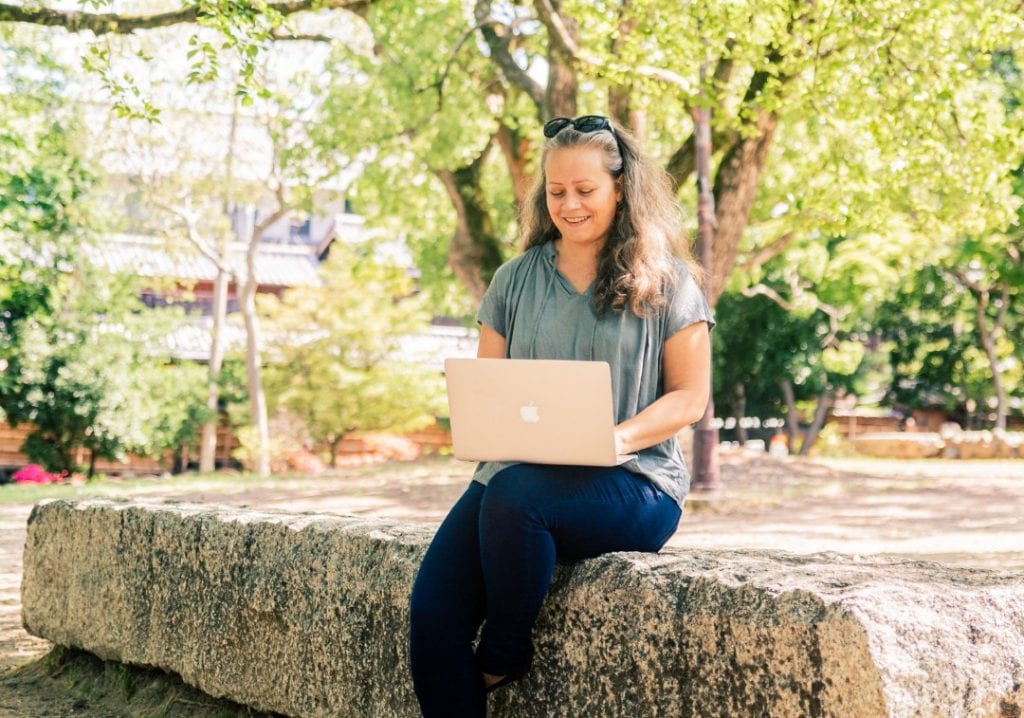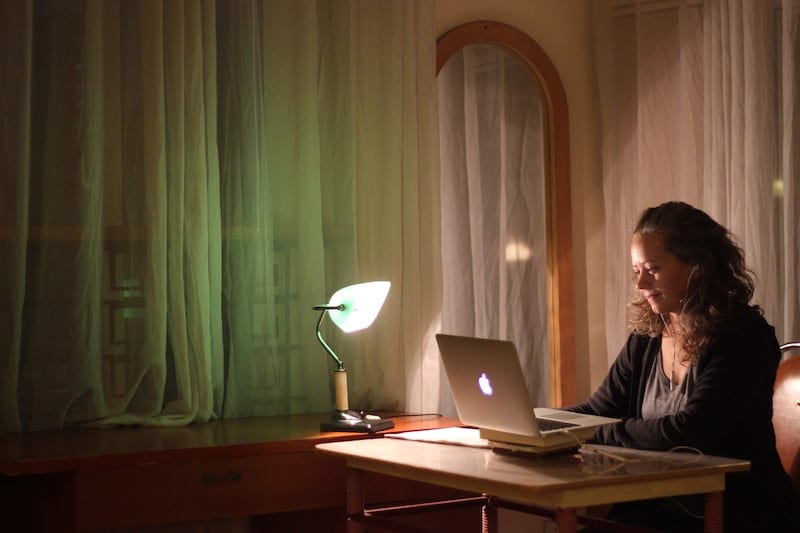Dr. Sonia Jaeger is a psychologist and psychotherapist who provides online counselling in German, French and English, to Expats, digital nomads and other remote workers. She is also the co-founder of the Location Independent Therapists (LIT) Community, an international community for mental health professionals. She is the co-host of the German podcast “Mit Psychologie und Laptop um die Welt”. She’s been a full-time digital nomad for over 6 years now.
What are the most common problems digital nomads face?
In my experience, there are different types of mental health issues digital nomads face. Some of those might have been present before they started their nomad journey, maybe hoping to fix their issues by starting a new lifestyle. While that might work in the short term, it’s usually not a long-term fix for underlying issues like depression, anxiety disorders, OCD, unresolved trauma, etc. Mental health issues are very common in the general population, there is no reason digital nomads should be less affected. Then, of course there are those issues that can be a result of this lifestyle, from a lack of stability to loneliness and worries about the future, stress and burnout. The later especially for those digital nomads who not only start a new lifestyle but also a new career as a freelancer or solopreneur all at the same time.
What are the solutions to improve it?
Facing your issues instead of just moving on to the next country could be a good start. Surrounding yourself with like-minded people, joining (virtual) communities or meeting up with other digital nomads wherever you are as well as keeping in touch with friends and family. Making sure to find a way of living that really fits you and your needs and not just one that looks pretty on social media. Finally, getting help – there are plenty of location independent therapists out there who understand this life and the issues that come with it.

What should companies do for digital nomads wellbeing and health?
I believe we all know by now that mental health related issues lead to a huge loss of productivity and lower performance, so this shouldn’t surprise anyone if I say that companies should care for their employees wellbeing. One of the issues I encounter is that most traditional companies and EAPs are not familiar with the digital nomad lifestyle and have a harder time connecting with the issues those employees face. Making it a priority to create spaces to talk about mental health, to help employees connect with their colleagues especially if they work in remote teams and to offer them support (from workshops that help destigmatizing mental health issues and introducing the employees to some basic mental health tools all the way to 1:1 counselling) whenever they need it would really help.
How to improve your mental health as a digital nomad?
By making it a priority and understanding how important both your physical and your mental health are, especially when you are often moving around. It usually helps to create routines and healthy work-life boundaries, to make sure to take time off and give yourself time and space to rest, relax and recharge. And, of course, by getting help if you feel like you have tried a lot already but are still stuck.
Are there any tools you would recommend?
With my location independent clients I work a lot with tools from ACT (Acceptance Commitment Therapy), focusing on identifying your values, working on being present right now, right here, unhooking from negative thoughts and taking committed action, doing what really matters. I also often recommend self-compassion exercises, as many digital nomads tend to be quite hard on themselves when things don’t go as planned.

Can we say digital nomads are happier than other people?
No, I don’t think we can – but they would like to think they are happier and often put a lot of effort into projecting that image on social media. But happiness is a fleeting thing that we shouldn’t center our live around. Those who live this life long term know how hard it can be just as much as they know how rewarding it can be. There are many ways to be fulfilled and happy, you don’t need to uproot your whole life to live a meaningful life. But, if you decide to do so and actually make it work (as in, are not just spending 16h a day on your laptop in a crappy hostel room in Chiang Mai or similar), it can be a wonderful life that lets you discover new places, meet new people and eat a lot of great food. So yes, some of us might be quite happy and fulfilled after all.
What are the positive aspects of being location independent?
One of the best things about being location independent is that it increases our psychological flexibility and adaptability and pushes us out of our comfort zone on a pretty regular basis. It also allows us to spend more time with friends and family, especially if you come from an international background. Finally, it opens up so many more possibilities, whether it’s meeting new people, learning new languages or trying out things we wouldn’t have access to “back home”. If we manage to create a sense of home within ourselves it won’t matter as much where we are and we can learn to adapt to new challenges more quickly.
More info about Dr. Sonia Jaeger: www.sonia-jaeger.com












